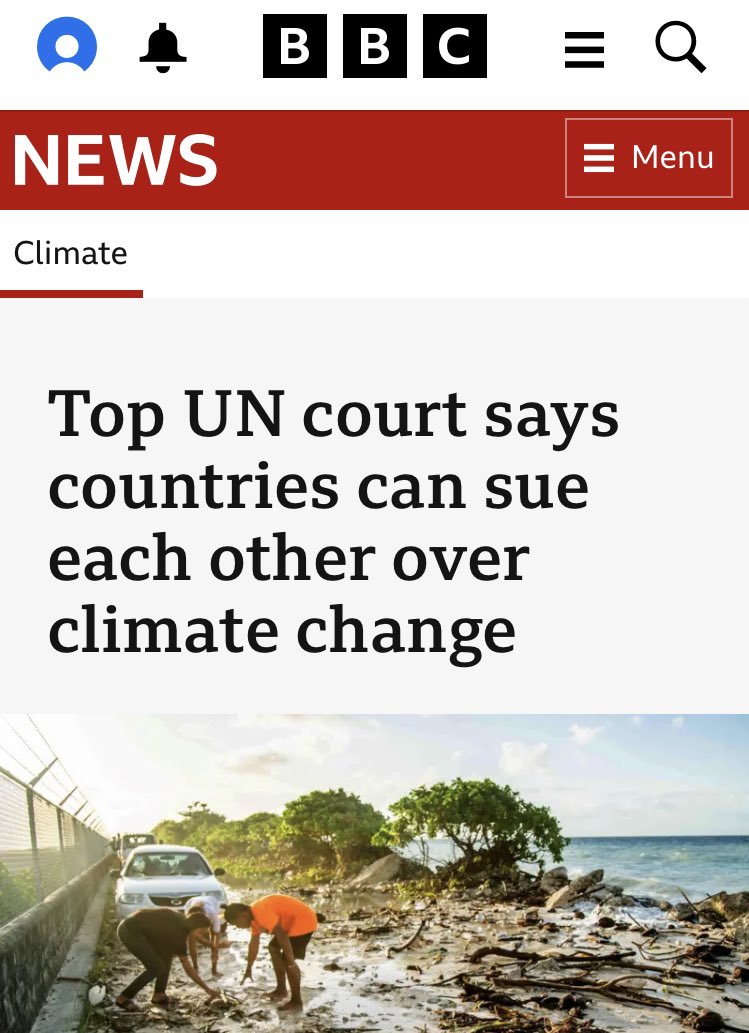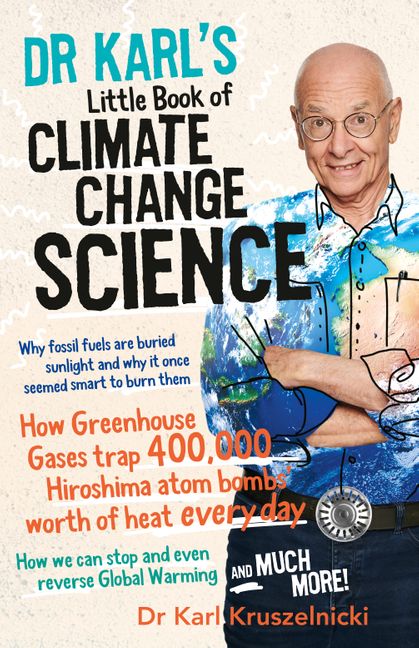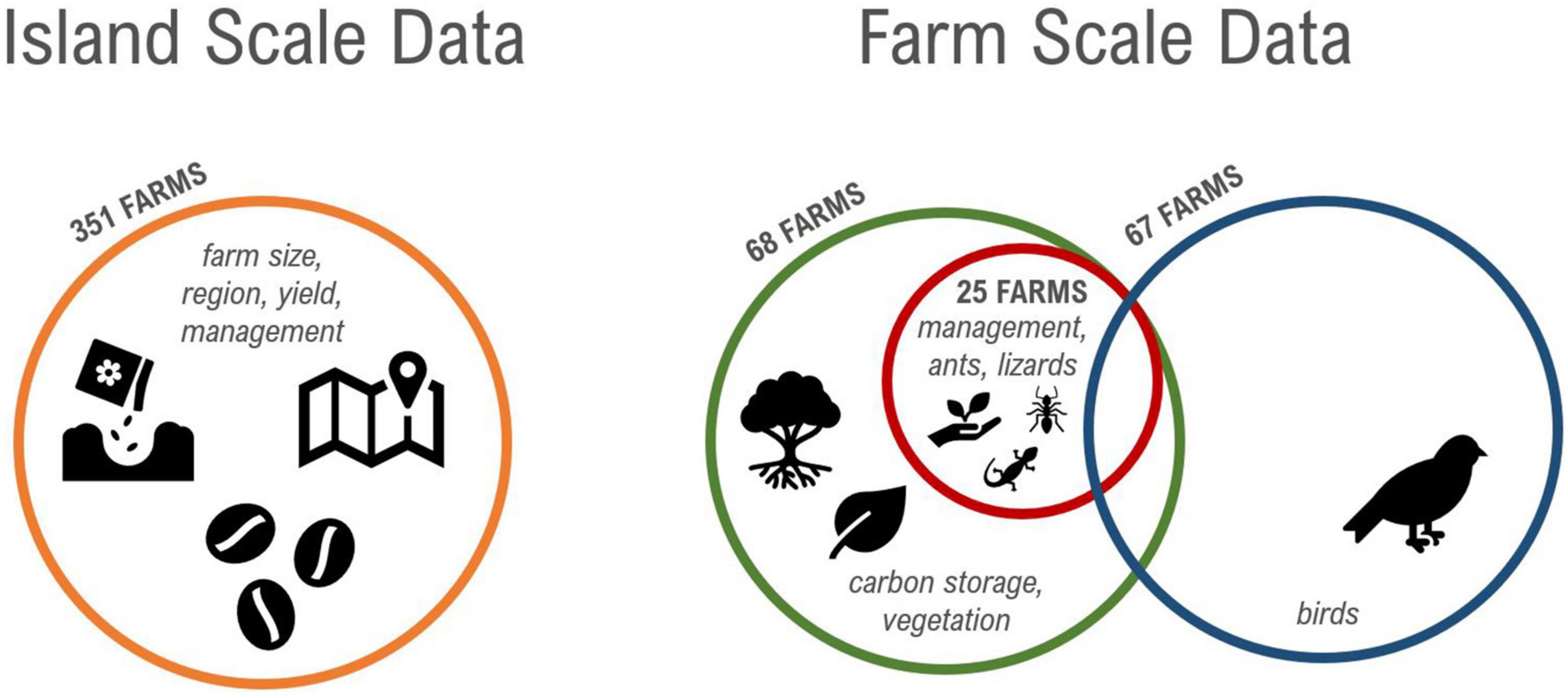Report on the International Court of Justice Advisory Opinion on State Obligations Regarding Climate Change and its Implications for the Sustainable Development Goals
1. Executive Summary
The International Court of Justice (ICJ) has issued a landmark advisory opinion establishing a legal basis for states to be held accountable for the impacts of climate change, including historic emissions. This non-binding yet highly influential ruling represents a significant advancement in international environmental law. It directly supports the achievement of the United Nations Sustainable Development Goals (SDGs), particularly SDG 13 (Climate Action) and SDG 16 (Peace, Justice and Strong Institutions), by providing a legal pathway for climate justice and reinforcing the obligations of states to protect the global environment for current and future generations.
2. Key Determinations of the ICJ Advisory Opinion
The court’s opinion outlines several critical obligations for states concerning climate change:
- Accountability for Emissions: States can be held responsible for the consequences of their historic and current greenhouse gas emissions, creating a legal avenue for litigation between nations.
- Ambition under the Paris Agreement: Failure to develop and implement the most ambitious possible climate action plans constitutes a breach of commitments under the 2015 Paris Agreement.
- Universal Environmental Obligations: Broader international law requires all states, including those not party to the Paris Agreement, to protect the environment and the climate system.
- Right to Remedy and Compensation: Climate-vulnerable nations have a right to seek damages and compensation for climate-related losses, such as the destruction of infrastructure and territory. This directly addresses the financial burdens that impede progress on SDG 1 (No Poverty) and SDG 11 (Sustainable Cities and Communities).
- State Responsibility for Corporate Actors: Governments are responsible for the climate impact of private companies operating within their jurisdictions. This includes activities such as subsidising the fossil fuel industry or approving new extraction licenses, which run counter to SDG 7 (Affordable and Clean Energy) and SDG 12 (Responsible Consumption and Production).
3. Alignment with Sustainable Development Goal 13: Climate Action
The ICJ ruling provides a powerful legal instrument to accelerate progress on SDG 13 by strengthening climate governance and accountability.
- The opinion reinforces the urgency of taking action to combat climate change and its impacts.
- It creates a legal incentive for nations, especially high-emitting ones, to strengthen their climate mitigation and adaptation measures.
- By holding states accountable for inaction, the ruling supports the core objective of SDG 13 to integrate climate change measures into national policies, strategies, and planning.
- The potential for litigation may compel developed nations to fulfill their commitments to help developing nations, a key component of global climate action.
4. Strengthening Sustainable Development Goal 16: Peace, Justice and Strong Institutions
This legal development is a victory for international justice and strengthens the institutions vital for achieving SDG 16.
- Access to Justice: The ruling provides a formal legal channel for vulnerable states, such as the Pacific Island nations that initiated the case, to seek justice for climate-related harm, thereby promoting the rule of law at the international level.
- Effective and Accountable Institutions: It affirms the role of the ICJ as a critical institution for interpreting international law and holding states accountable for their obligations.
- Reducing Inequalities: The decision directly addresses SDG 10 (Reduced Inequalities) by empowering nations disproportionately affected by a crisis they did not primarily cause.
5. Broader Implications for the 2030 Agenda
The consequences of the ICJ’s opinion extend across the entire SDG framework, highlighting the interconnected nature of climate change and sustainable development.
- SDG 11 (Sustainable Cities and Communities): The right to seek compensation for destroyed infrastructure, such as that experienced by Vanuatu, and the potential need to relocate entire communities, as faced by the Marshall Islands, underscores the link between climate justice and resilient human settlements.
- SDG 14 (Life Below Water) and SDG 15 (Life on Land): By mandating protection of the climate system, the ruling inherently supports the preservation of marine and terrestrial ecosystems threatened by rising sea levels, ocean acidification, and extreme weather.
- SDG 17 (Partnerships for the Goals): The case highlights both the success of partnerships among developing nations and the urgent need to strengthen the global partnership for sustainable development by ensuring accountability and fulfillment of commitments by developed countries.
6. Conclusion
The advisory opinion from the International Court of Justice is a watershed moment for climate litigation and international law. While enforcement remains dependent on the political will of states, the ruling provides an authoritative legal foundation for holding nations accountable for their role in the climate crisis. It serves as a critical tool for climate-vulnerable countries and civil society to advocate for more ambitious action, demand justice, and accelerate the global transition required to achieve the Sustainable Development Goals.
Analysis of Sustainable Development Goals in the Article
1. Which SDGs are addressed or connected to the issues highlighted in the article?
- SDG 13: Climate Action: The entire article is centered on climate change, its impacts, the responsibility of nations to take action, and legal mechanisms to enforce climate commitments.
- SDG 16: Peace, Justice and Strong Institutions: The article focuses on the role of the International Court of Justice (ICJ), a key global institution, in providing a legal pathway for climate justice and holding nations accountable under international law.
- SDG 10: Reduced Inequalities: The case highlights the deep inequality between developed, high-emitting nations responsible for the bulk of historic emissions, and vulnerable developing nations (like Pacific islands) that suffer the most severe consequences. The legal action is a tool to address this imbalance.
- SDG 11: Sustainable Cities and Communities: The article explicitly mentions the impacts of climate change on communities, including “destroyed buildings and infrastructure,” displacement of people due to rising sea levels, and the potential need to relocate capital cities.
- SDG 17: Partnerships for the Goals: The article discusses the framework of international cooperation, referencing the UN Paris Agreement and the use of global legal institutions (ICJ) to strengthen commitments and ensure accountability among nations.
2. What specific targets under those SDGs can be identified based on the article’s content?
-
SDG 13: Climate Action
- Target 13.1: Strengthen resilience and adaptive capacity to climate-related hazards and natural disasters in all countries.
Explanation: The article highlights the vulnerability of Pacific island nations, stating Vanuatu is “the country most vulnerable to extreme weather globally” and that the Marshall Islands needs “$9 billion… to adapt to climate change.” This directly addresses the need for enhanced resilience and adaptation. - Target 13.2: Integrate climate change measures into national policies, strategies and planning.
Explanation: The court’s ruling that “if countries do not develop the most ambitious possible plans to tackle climate change this would constitute a breach of their promises in the Paris Agreement” directly supports the integration of climate action into national policy. - Target 13.a: Implement the commitment undertaken by developed-country parties… to address the needs of developing countries in respect of mitigation actions and transparency on implementation and fully operationalize the Green Climate Fund through its capitalization.
Explanation: The article discusses the push for “compensation from countries that have historically burned the most fossil fuels” and the frustration of poorer countries over developed nations “failing to keep existing promises,” which aligns with the financial commitments owed by developed countries.
- Target 13.1: Strengthen resilience and adaptive capacity to climate-related hazards and natural disasters in all countries.
-
SDG 16: Peace, Justice and Strong Institutions
- Target 16.3: Promote the rule of law at the national and international levels and ensure equal access to justice for all.
Explanation: The core of the article is about the ICJ’s “landmark decision” that “cleared the way for countries to sue each other over climate change.” This establishes a legal precedent and affirms that “those suffering the impacts of climate devastation have a right to remedy for climate harm,” directly promoting the rule of law and access to justice on an international scale. - Target 16.8: Broaden and strengthen the participation of developing countries in the institutions of global governance.
Explanation: The case was initiated by “a group of young law students from low-lying Pacific islands” and backed by developing nations. The victory is described as one for “every frontline community fighting to be heard,” demonstrating the strengthened participation and influence of developing countries in a key global institution like the ICJ.
- Target 16.3: Promote the rule of law at the national and international levels and ensure equal access to justice for all.
-
SDG 11: Sustainable Cities and Communities
- Target 11.5: By 2030, significantly reduce the number of deaths and the number of people affected and substantially decrease the direct economic losses… caused by disasters.
Explanation: The article quantifies economic losses, noting “$2.8 trillion losses from climate change” between 2000 and 2019. It also mentions the human impact, such as “Pacific Islanders who have been displaced as a result of rising sea level” and the destruction of “buildings and infrastructure.”
- Target 11.5: By 2030, significantly reduce the number of deaths and the number of people affected and substantially decrease the direct economic losses… caused by disasters.
3. Are there any indicators mentioned or implied in the article that can be used to measure progress towards the identified targets?
-
Financial Indicators
- Economic losses from climate disasters: The article states there were “$2.8 trillion losses from climate change” between 2000 and 2019. This is a direct measure of economic impact.
- Cost of adaptation: The article mentions that “the costs for their island to adapt to climate change are $9 billion” for the Marshall Islands. This serves as an indicator of the financial resources needed for adaptation in vulnerable nations.
- Fossil fuel subsidies: The ruling implies that “subsidising the fossil fuel industry” could be a breach of obligations, making the value of such subsidies a key negative indicator.
-
Policy and Legal Indicators
- Number of legal cases: The article suggests that “developing countries are already exploring bringing new cases seeking compensation.” The number of such cases filed in national or international courts citing the ICJ opinion would be an indicator of access to justice.
- National climate plans: The court’s focus on countries developing “the most ambitious possible plans to tackle climate change” implies that the existence and ambition level of national climate strategies (like Nationally Determined Contributions) are key indicators.
- Approval of new fossil fuel projects: The ruling that “approving new oil and gas licenses could be in breach of a country’s obligations” makes the number of new licenses an indicator of non-compliance.
-
Human Impact Indicators
- Number of people displaced: The article refers to “dozens of Pacific Islanders who have been displaced as a result of rising sea level,” which is a direct indicator of the human cost of climate change.
4. Table of SDGs, Targets, and Indicators
| SDGs | Targets | Indicators Identified in the Article |
|---|---|---|
| SDG 13: Climate Action |
13.1: Strengthen resilience and adaptive capacity.
13.2: Integrate climate change measures into national policies. 13.a: Implement financial commitments by developed countries. |
– Financial cost of adaptation for vulnerable nations (e.g., “$9 billion for the Marshall Islands”). – Existence and ambition level of national climate plans. – Amount of compensation paid by high-emitting nations to vulnerable states. – Value of subsidies for the fossil fuel industry. – Number of new oil and gas licenses approved. |
| SDG 16: Peace, Justice and Strong Institutions |
16.3: Promote the rule of law and ensure equal access to justice.
16.8: Broaden participation of developing countries in global governance. |
– Number of legal cases brought by countries seeking climate compensation citing the ICJ opinion. – Number of cases initiated by developing countries in international institutions. |
| SDG 11: Sustainable Cities and Communities | 11.5: Reduce economic losses and the number of people affected by disasters. |
– Direct economic losses from climate change (e.g., “$2.8 trillion losses from 2000-2019”). – Number of people displaced by climate impacts (e.g., “Pacific Islanders who have been displaced”). |
Source: bbc.com






